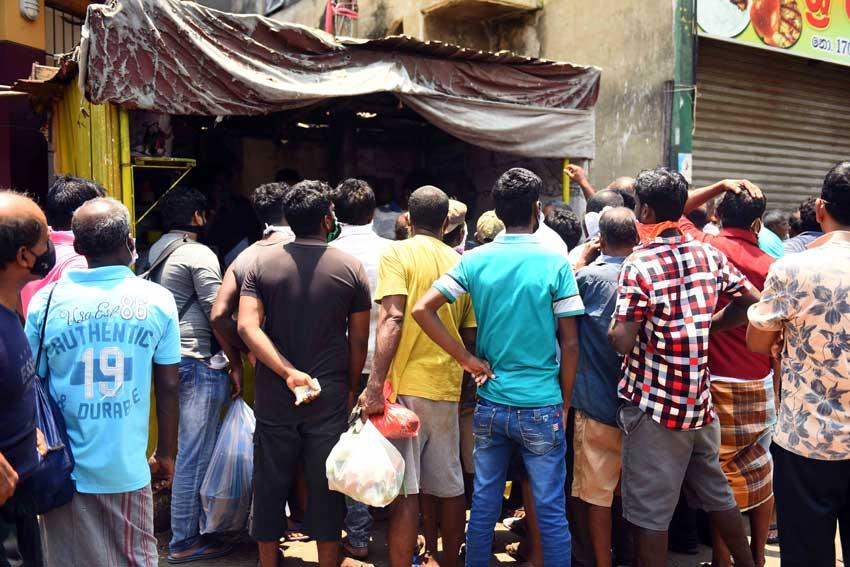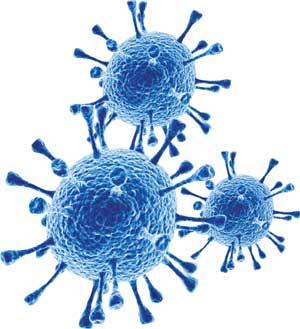04 Apr 2020 - {{hitsCtrl.values.hits}}

Sri Lankans did not seem to have been alarmed by the rapidity of spread or the looming threat the virus posed to their lives, despite more than half of the world having been struggling to survive
People involved in the medical field is the most precious group under present circumstances. If the medical system collapses, Sri Lanka will be another Italy
 Going by some of the malicious comments posted by a section of society on social media over the spread of COVID-19, they seem to believe rashness is a legacy of a particular community. If one compiles a list of causes of the rapid worldwide spread of the pandemic, recklessness on part of the people in every country might be the first among them.
Going by some of the malicious comments posted by a section of society on social media over the spread of COVID-19, they seem to believe rashness is a legacy of a particular community. If one compiles a list of causes of the rapid worldwide spread of the pandemic, recklessness on part of the people in every country might be the first among them.
No country or community could be cited as an exception. The famous “Atapattama” programme on ITN aired on Wednesday how supermarkets were turned into battlefields in some countries soon after people were allowed to go out and purchase essential items during intervals between two curfews.

While China, South Korea, Iran and several European countries struggled to contain the spread of the COVID-19 outbreak among their citizens and the new virus had invaded through more than half of the countries in the world, Sri Lanka was initially seen as a mysterious anomaly that remained unscathed from the deadly newfound virus. However, it is in a way incomprehensible that since the first Sri Lankan was tested positive for Covid-19 on March 11 within the country, new cases started to emerge back to back.
Yet, Sri Lankans did not seem to have been alarmed by the rapidity of spread or the looming threat the virus posed to their lives, despite more than half of the world having been struggling to survive. When the government declared holidays for the public sector while requesting the private sector to follow suit, in order to implement the “social distancing” concept as a measure to mitigate the spread of the virus, people took advantage of the holidays to go on picnics and pilgrimages.
In spite of the government (while closing schools) having requested people to avoid gatherings, two popular schools thought it fit to play their annual big match. Even after it was reported that a first officer of SriLankan Airlines who attended the match contracted the virus and subsequently hundreds of other attendees went into self-quarantine, only President Gotabaya Rajapaksa had publicly censured the irresponsible decision to proceed with the match.
The government imposed a three-day countrywide police curfew from March 20 and when it was lifted on March 24 for six hours, the scramble that had engulfed marketplaces throughout the country, especially in the Western Province, was such that the people belonged to all communities seemed to be prepared to risk their lives for food and other needs. This prompted relevant authorities to declare the three districts of Colombo, Gampaha and Kalutara as high-risk zones for COVID-19 and to impose an indefinite curfew in those areas – the Jaffna District was later listed among them for the same reason.
Some irresponsible men are reported to have used the curfew to go hunting in national parks, brewing moonshine and social media reported about political meetings organised by the ruling party as well as opposition politicians. DIG Ajith Rohana told the media that police arrested several persons who went on sightseeing during curfew (“curfew balanna yanawa”) using medical prescriptions as passes.
Besides, we witnessed the ugly scenes created at Bandaranaike International Airport (BIA) by some returnees from Italy, South Korea and Iran when they were told to be quarantined at designated centres before proceeding to their homes. Just because some quarantine dodgers who were detected after they were tested positive for COVID-19 belonged to a particular community does not mean they were the only ones who evaded the quarantine process. As if wrong is wrong only if it goes wrong, some people attempt to give a communal colouring to the issue.
Yet, no irresponsible act could be justified just because others too had committed the same, particularly when it comes to COVID-19 which is life-threatening. For instance, those who were responsible for organising or allowing congregational prayers on March 27 at Kivulakade mosque in Horowpothana must be severely dealt with. Those who are blind to the fact that the pandemic is rolling over the globe like a worldwide tsunami, killing thousands of people and leaving another hundreds of thousands bedridden, are unbecoming to be religious leaders. Religion without truthfulness and commitment towards fellow citizens is a hollow, hypocritical exercise.
We have a much more important task than finding new clues to rekindle old spites. Protecting ourselves and our loved ones from the killer disease was seen initially among them. However, in the light of doctors and other health workers having to be quarantined, subsequent to their exposure to some people who had been infected and sought medical assistance without informing their overseas travel and suspected coronavirus symptoms, priority must be changed.
People involved in the medical field is the most precious group under present circumstances. If the medical system collapses, Sri Lanka will be another Italy. They are the protectors of the people. Protecting our protectors is as important as protecting ourselves. Educating the masses on this issue is paramount to the authorities and the media.
Whatever the advises given to people by healthcare authorities, the police and the army, one has to expect another chaotic scramble similar to the one that was witnessed on March 24, once curfew is lifted the next time. The only way to rectify or minimise the situation is to streamline and strengthen the already initiated distribution mechanisms of essential items – food and medicine. On the other hand, the government can extend the curfew even until the last Sri Lankan COVID patient is cured, with a successful house-to-house
distribution network.
16 Apr 2024 5 hours ago
16 Apr 2024 6 hours ago
16 Apr 2024 7 hours ago
16 Apr 2024 8 hours ago
16 Apr 2024 8 hours ago